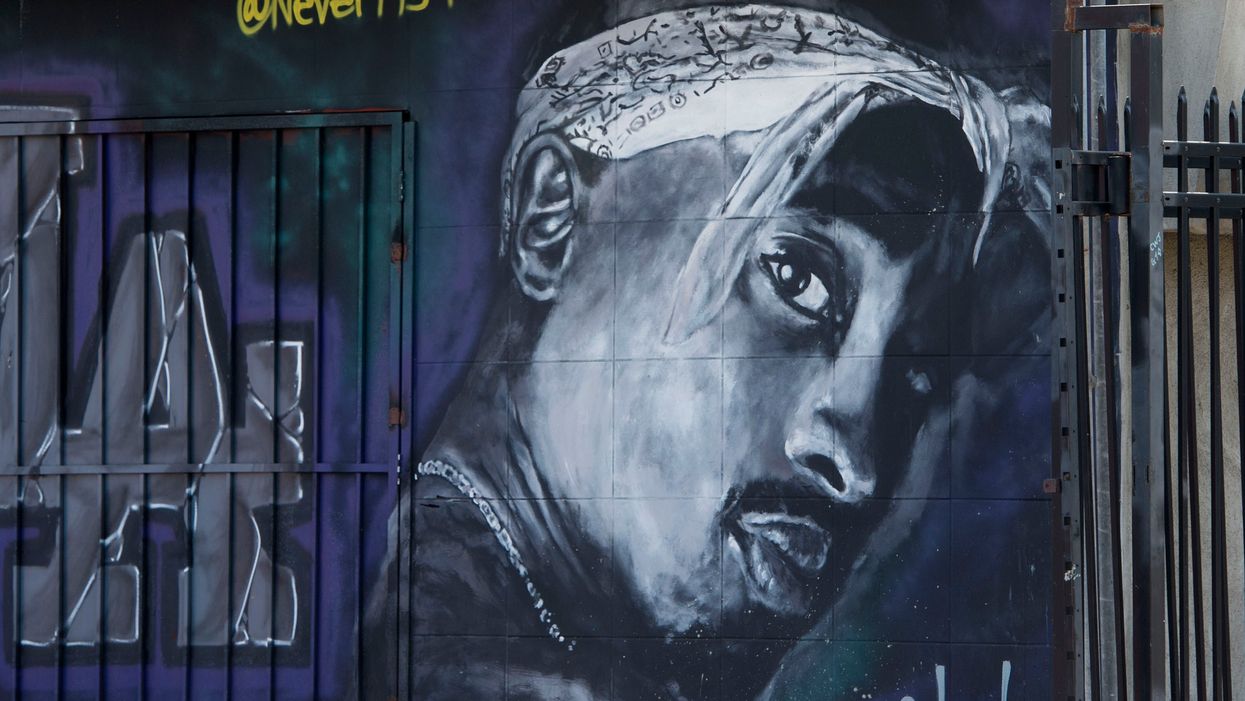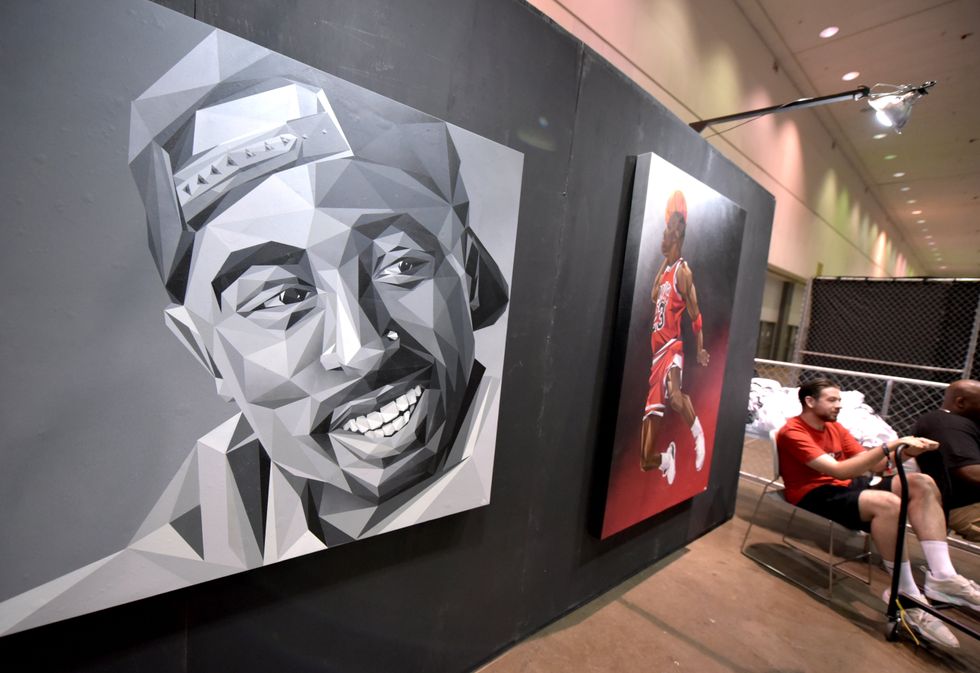Celebrities
Breanna Robinson
Jun 15, 2021

AFP via Getty Images
Musical legend Tupac “2Pac” Shakur played a significant role in the cultivation of hip hop, selling 75 million records and acting in several movies such as Juice and Poetic Justice alongside Janet Jackson.
He also was a prominent voice of activism, highlighting various social issues happening in the United States.
It’s no surpise - Shakur came from a family of social activists. His mother Afeni Shakur and Aunt Asata Shakur were members of the Black Panther Party in the United States.
This organization sought to challenge injustices such as police brutality and poverty inflicted upon the Black community.
In many of his songs, the lyrical content acted as a critique of racism, violence in the inner city, the youth, and police brutality.
As Shakur spoke about these issues that happen to be a reality in the Black community, it wasn’t just a way to get street credit—it was a reality for him.
As a frequent victim of police brutality, Shakur sued the Oakland Police Department for brutalizing him for a minor jaywalking charge.
Tragically, in September 1996, Shakur was murdered in a drive-by shooting in Las Vegas, Nevada. He was just 25-years-old.
Due to his contribution to the world at large and the hearts of hip hop fans, many wonder where he would be today if he was still alive.
In light of his birthday, June 16, Pitchfork published selected excerpts from a new oral history book called Changes, in which his associates, employees, friends, and many others who knew him speculated on where he would be now and how he has, and would continue to, impact millions of people in society.

His love of social activism would have drawn him to politics
Shakur’s quest to talk about real issues outside of partying seemed to be an indicator of his personhood and understanding of community life.
“I think he knew that he had a responsibility, and I think he would have been a lot more useful to not only his own people but to all disenfranchised people of the future,” said Gobi Rahimi, a videographer and Look Hear Creations co-founder, said.
He could have become a documentary maker
Standing up and talking about injustices was common practice for Shakur, which would mostly be like him today. Wendy Day, who founded an advocacy organization called Rap Coalition and worked alongside him, sees a lot of his personality in Killer Mike, an activist, and one-half of the musical duo Run The Jewels.
Killer Mike had a docu-series on Netflix called Trigger Warning with Killer Mike that explored issues within the US about religion, poverty, gangs, and the Black community.
“I think he definitely would have been some sort of a leader. I see a lot of him in Killer Mike. I see a lot of him in a lot of people that stand up to injustice,” Day told the outlet.
He had the potential to become a Martin Luther King Jr or Malcolm X-type figure
With Shakur coming from a family with a background in activism and civil rights, it’s not too far-fetched to believe that he would reach this level because of the impact and respect he got from others for his integrity and honesty.
“I think his being alive would be as big as a Dr. King or Malcolm X still being alive. There would be a lot more African American leaders standing for us. Tupac still represents Black power,” said Blu, a Los Angeles, California rapper.
Ultimately, the world as we know it doesn’t have perfect people or flawless victors. Shakur could be the victim of a system rigged against a group of people, the perpetrator of crimes and social activism all in one, which can create a subtle legacy but still significant.
He was a man that spoke his truth about his lived experiences and the livelihoods of others no matter the repercussions. And for that, he still remains an integral figure in history.
He’d showed his acting chops and could have launched a glittering Hollywood career
He had acting chops in ‘90s films, highlighting his range of talent as an artist overall.
He starred in Juice (1992), Poetic Justice (1993), and Bullet (1996) among others.
Here’s what fellow cast mate Khalil Kain (who played Raheem in the movie Juice) said:
“If his schedule permitted, he was more than willing to go and do that movie, or do that TV show, or to do that play. I would have loved to see Pac onstage,” he said, in part.
Top 100
The Conversation (0)













